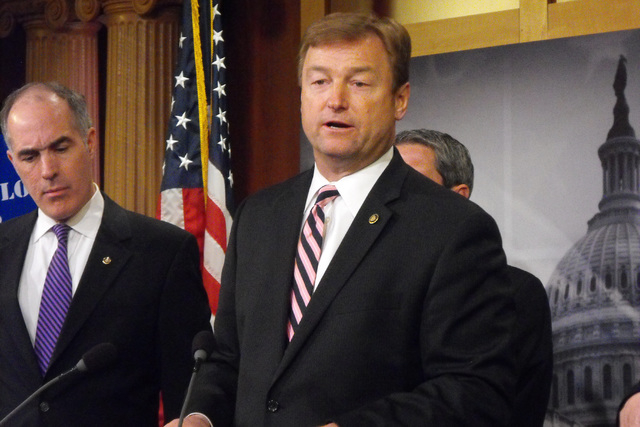U.S. Senate clears key hurdle in bid to restore jobless benefits
WASHINGTON — The Senate cleared a key hurdle on Thursday in a stalled bid to renew federal jobless benefits for more than 2 million long-term unemployed workers.
Senators voted 65-34 in a test vote for a bill that would extend weekly payments until the beginning of June, and retroactive to Dec. 28 when an emergency payment program expired. Sixty votes were needed to move forward, a hurdle the Senate was unable to clear in two previous attempts.
The legislation had been stalled for almost four months. Negotiated changes made in the way the five months of benefits would be offset by new revenue elsewhere drew support of 10 Republicans who joined with Democrats to reach the needed majority.
“Today the Senate overcame another hurdle and is one step closer to providing unemployed Americans some much-needed relief,” said Sen. Dean Heller, R-Nev., one of the lead negotiators.
The vote on a procedural motion clears the way for debate on the bill and final Senate votes expected next week. Then the legislation goes to the House, where a fresh battle is expected.
While Democrats have pressed for action, House Speaker John Boehner, R-Ohio, said this week he considers the Senate bill “unworkable,” and indicated there is no plan to bring it up for a vote.
“I told the president I would consider this as long as it was paid for and as long as there were provisions attached that would actually help the economy and help people get back to work. Those conditions have not been met,” Boehner told reporters.
Boehner circulated a letter last week from a national unemployment insurance directors’ organization raising questions about how the Senate bill would be carried out, including determining eligibility for retroactive payments to beneficiaries going back as long as three months.
The Obama administration sought to blunt the concerns. Secretary of Labor Thomas Perez sent a letter to congressional leaders that said prior extensions of unemployment benefits included retroactive payments and his department has guidelines on how that can be carried out.
Heller said Thursday that he and other supporters of the bill at GOP meetings this week also addressed senators’ questions about the nuts and bolts.
“Some of the concerns were whether and how the states would implement it and we walked them through the bill,” Heller said. “We softened some of the opposition.”
The December expiration of the federal emergency unemployment program ended jobless benefits for 1.7 million people whose 26 weeks of state-funded basic benefits had run out. That number has grown to more than 2 million people as basic benefits continue to expire for an estimated 72,000 people each week.
In Nevada, more than 26,000 people have exhausted federal jobless benefits.
Contact Stephens Washington Bureau Chief Steve Tetreault at STetreault@stephensmedia.com or 202-783-1760. Follow him on Twitter @STetreaultDC.

















